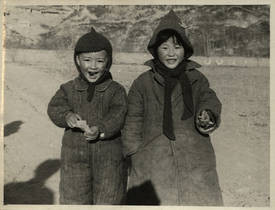 Here's a mindbending statistics and probability quirk based on the classic "Two Children" problem, a famous puzzler that goes like this: "Suppose that Mr. Smith has two children, at least one of whom is a son. What is the probability both children are boys?" (the correct answer is usually held to be 1/3, but read on).
Here's a mindbending statistics and probability quirk based on the classic "Two Children" problem, a famous puzzler that goes like this: "Suppose that Mr. Smith has two children, at least one of whom is a son. What is the probability both children are boys?" (the correct answer is usually held to be 1/3, but read on). Keith Devlin, a mathematician at Stanford, examined a variant: "I have two children, one of whom is a son born on a Tuesday. What is the probability that I have two boys?" that arose at the Gathering 4 Gardner conference (held in honor of Martin Gardner) and its even more startling conclusion: 13/27 (!).
Devlin's gloss on the famous puzzler is this:
Everything depends, he points out, on why I decided to tell you about the Tuesday-birthday-boy. If I specifically selected him because he was a boy born on Tuesday (and if I would have kept quiet had neither of my children qualified), then the 13/27 probability is correct. But if I randomly chose one of my two children to describe and then reported the child's sex and birthday, and he just happened to be a boy born on Tuesday, then intuition prevails: The probability that the other child will be a boy will indeed be 1/2. The child's sex and birthday are just information offered after the selection is made, which doesn't affect the probability in the slightest.When intuition and math probably look wrong (via /.)
(Image: [Two Smiling Children], a Creative Commons Attribution (2.0) image from thomasfisherlibrary's photostream)
http://feeds.boingboing.net/~r/boingboing/iBag/~3/3B4SQseYU2c/brain-melting-counte.html
Sent from James' iPhone
No comments:
Post a Comment